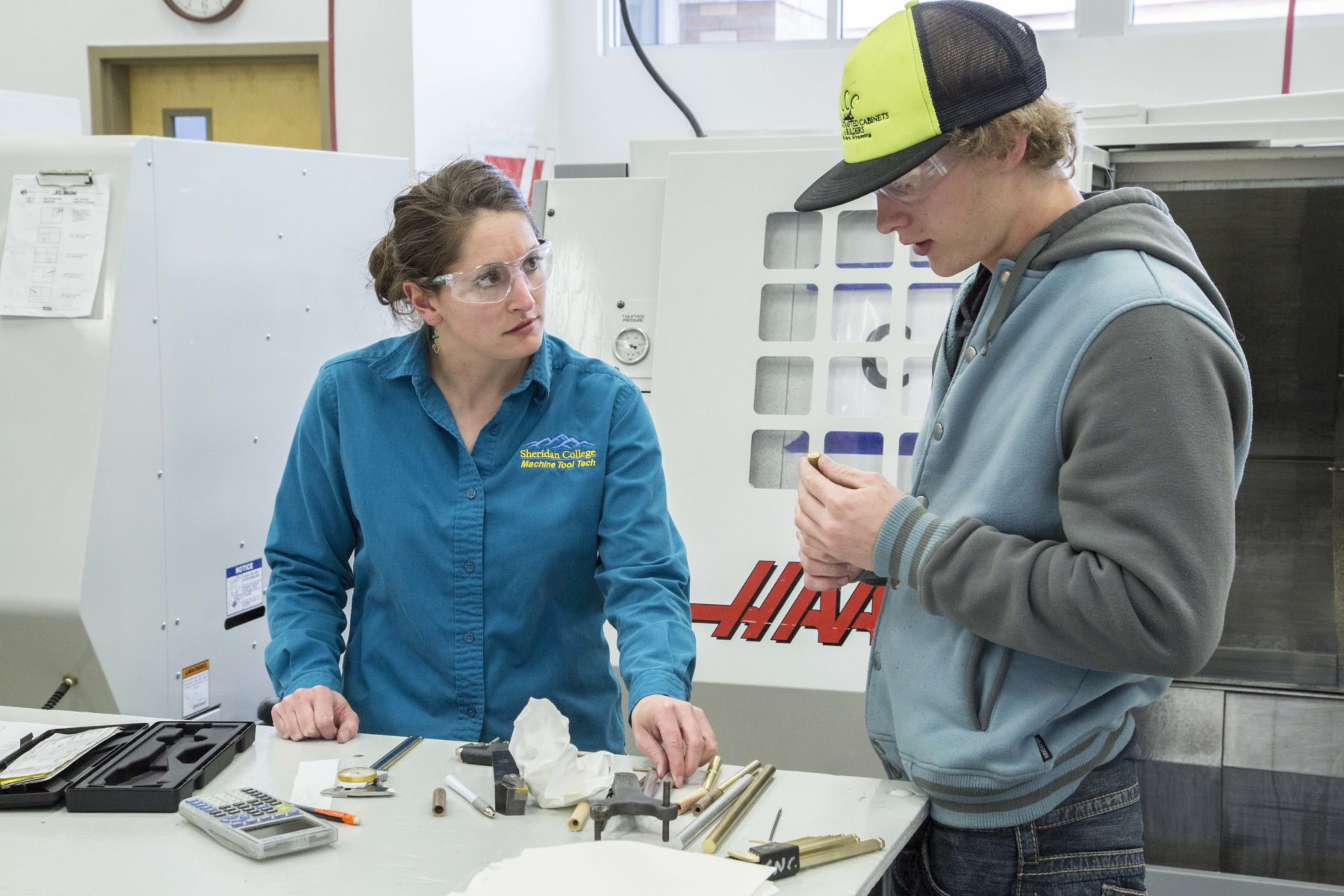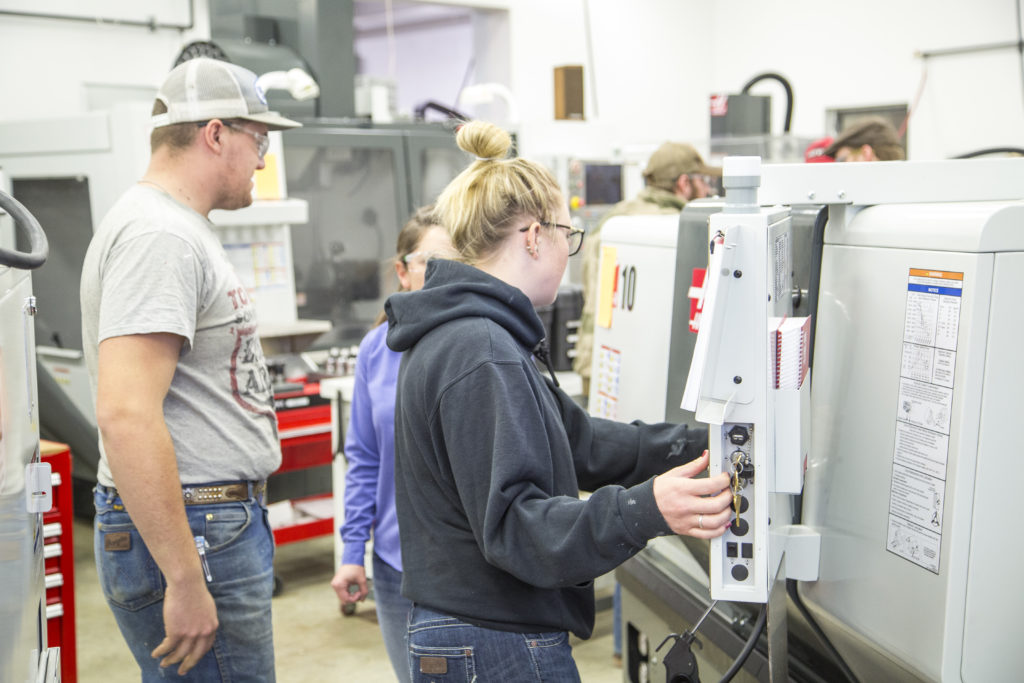
Daring to be Different
If you walked around the Technical Education Center at Sheridan College at the end of last semester, you would have noticed a few more women hard at work behind the lathes, welding stations, and diesel engines than in the past.
Between the machine tool, diesel, and welding technology programs, there were a total of 12 female students this fall semester. Just 10 years ago, it would have been rare to see one or two women pursuing any of these degrees.
For 26-year-old veteran and first-year student Candice Ayres, machine tooling was something she never thought she would end up doing. She had always planned a career in the army, but after several years as a truck driver transporting ammunition, she decided she wanted to try something new.
“When I got out of the army, I just started researching different things I could do,” Ayres said. “And I remembered my grandpa had an old lathe that he’d tinker on, and I always thought it would be cool to make things that people use every day.”
“There are just so many options with machine tooling. Almost every industry, everything from agriculture to aerospace engineering, needs machinists.”
– Candace Ayers
As a high school student in Newcastle, Ayres always enjoyed her computer-aided design classes and liked building prototypes and 3D models, but she had no experience with machine tooling before coming to college.
“My first day of class, I didn’t even know what the machines were. I think the instructors saw me get discouraged a few times, and they were really good at keeping me confident,” she said.
After wrapping up her first semester, she is excited to continue the program and decide which direction she would like to take her career.
“There are just so many options with machine tooling. Almost every industry, everything from agriculture to aerospace engineering, needs machinists,” she said.
Ayres acknowledged that there are fewer women statistically that go into careers like machine tooling, and she said she hoped to continue to see more women consider this type of career path.
“I don’t think there’s a certain stigma attached to women in these fields necessarily,” she said. “But men are almost surprised when a woman comes in and takes control and is doing good work.”

Celsey Martin works on a project in the machine tool lab.
Celsey Martin, who graduated in 2016 with her associate degree in welding technology and is now working on her machine tool technology degree, agreed, and she thinks social media is doing a lot to change perceptions.
“You used to never really hear about women in these fields, and now there are people on Instagram encouraging women welders and machinists, so it’s definitely growing,” she said.
Celsey’s dad taught her how to weld growing up on her family ranch near Shoshoni. Now that she has added machining to her skill set, she has even taught her dad about it.
“He didn’t know anything about machining, so I’ve taught him a little bit,” she said. “I’ve even made some parts for him for our ranch.”
Martin plans to graduate this spring and find a job as either a welder or a machinist in a shop for two years. After that, she will be eligible to become a welding inspector, which is her next goal.
According to Payscale.com, she can expect to earn between $41,647 and $110,732 a year as a certified welding inspector, depending on her experience level. Currently, 94% of welding inspectors are male.
Instructor Sara Spann explains a concept to a student. Both Celsey and Candice agreed that one aspect of the program that has made a positive difference for them is having a female instructor.
Sara Spann started teaching at Sheridan College in 2013. She received her bachelor’s degree in industrial technology with an emphasis in prototype development from Bemidji State University in 2007. Before becoming an instructor, she worked as a prototype specialist for Garmin International.
“I think it certainly helps that I’m female, so they have both male and female role models,” said Spann. “As is the case with any discipline, it’s good to have a mix of students of both genders and from different backgrounds so they learn to work well with all different types of people.”
Spann thinks the increase in the number of female students is partially a reflection of an overall increase in the number of students enrolling in technical programs at Sheridan College. Due to increased demand, the college is currently renovating and expanding the Technical Education Center to have the capacity to enroll more students.
A 2015 skills gap study by Deloitte and the Manufacturing Institute found that nearly 3.5 million manufacturing jobs will need to be filled over the next decade. Because of this gap, 80% of manufacturing companies say they are willing to pay more than the market rates in areas with a talent shortage. That is great news for students like Celsey and Candice, who will graduate equipped with the skills and knowledge employers need and excited to enter the workforce.

